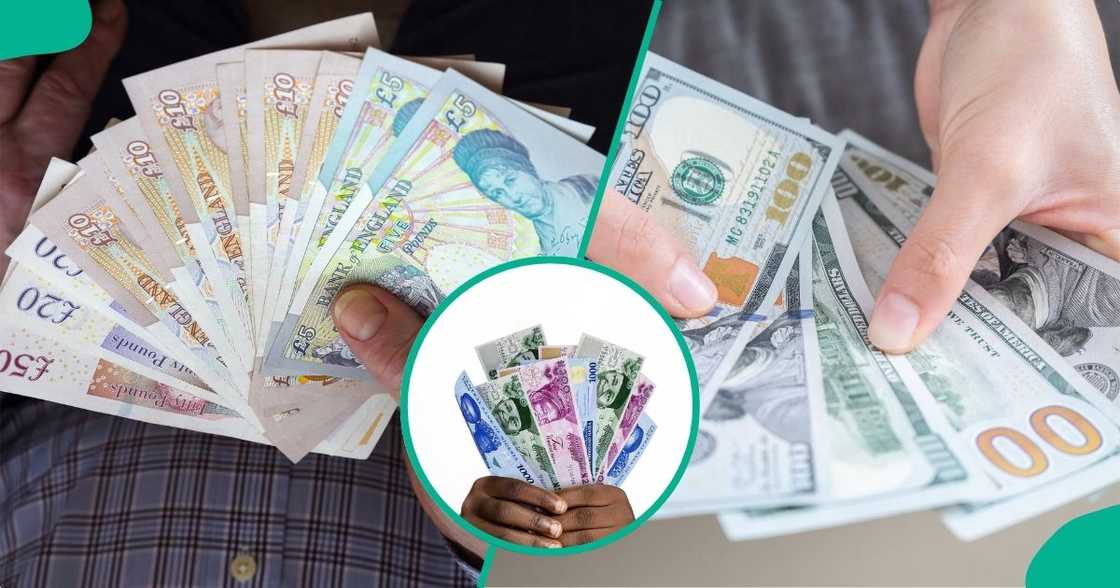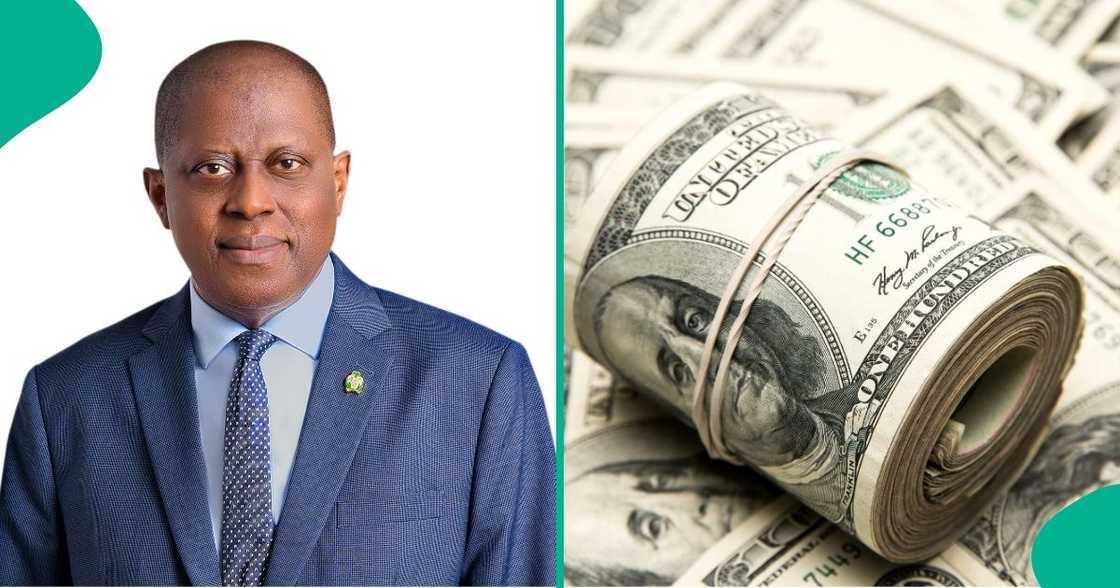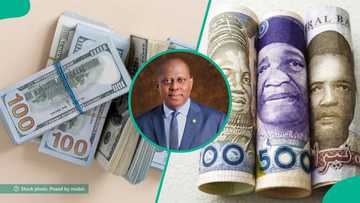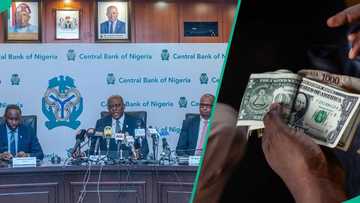Naira Gains, Reserves Surge: What Stronger Currency Means for Nigerians
- The Nigerian economy seems to be on the right footing following the appreciation of the local currency and external reserves gain
- As of last week, the naira traded at N1,488 per dollar, from N1,490, while the reserves gained over $600 million
- Experts have said that the twin good news mean renewed investor confidence and economic stability
Pascal Oparada, a reporter for Legit.ng, has over ten years of experience covering technology, energy, stocks, investment, and the economy.
For years, Nigerians have endured headlines about a falling naira and dwindling reserves.
But the story is changing. In recent weeks, the local currency has shown signs of resilience, trading at ₦1,488 per dollar, while Nigeria’s external reserves jumped by over $600 million.

Source: Getty Images
The twin gains have sparked cautious optimism among analysts, businesses, and everyday Nigerians.
But what exactly is driving this shift—and what does it mean for the economy?
Why is the naira rising?
The naira’s recovery is no accident. Analysts point to a combination of higher oil revenue, tighter monetary policies, and reforms aimed at unifying exchange rates.
These measures have reduced speculation, improved transparency, and encouraged more dollar inflows into Nigeria’s financial system.
With stronger inflows, the Central Bank of Nigeria (CBN) has been able to stabilise the official foreign exchange market, narrowing the gap with the parallel market.
This consistency discourages dollar hoarding and boosts trust in the naira.
The power of external reserves
Nigeria’s external reserves, often described as the country’s “foreign savings account” are critical to economic stability.
Higher reserves give the CBN more room to intervene when markets wobble, reducing volatility and shielding the economy from oil price swings or sudden capital flight.
Rising reserves also make Nigeria appear more creditworthy to global lenders and investors.
This can lower borrowing costs and improve access to international financing, providing breathing space for a government heavily burdened by debt servicing.
Big picture: Macroeconomic impact
A stronger naira and healthier reserves carry several benefits at the national level. First, they help reduce inflationary pressure.
Because Nigeria relies heavily on imports, especially food, fuel, and raw materials, a firmer currency lowers the cost of bringing in goods, which can stabilise consumer prices.
Second, stronger reserves allow Nigeria to meet its debt obligations more comfortably, sending positive signals to credit rating agencies and foreign investors.
A more stable naira also creates a predictable environment for foreign direct investment (FDI) in industries such as manufacturing, energy, and technology.
Small picture: Everyday impact of naira gains
The gains are also beginning to filter into daily life. Importers and traders are already seeing lower costs when buying goods abroad, which could translate into cheaper electronics, spare parts, and clothing.
Households may not immediately notice, but reduced inflationary pressure means more stable prices for essentials like food, transportation, and healthcare.
As one analyst explained to Legit.ng, “The combination of reserve growth and naira resurgence reflects renewed investor confidence in the economy.”
Small and medium-sized enterprises (SMEs), which make up the backbone of Nigeria’s economy, also stand to gain. With less forex volatility, SMEs can price goods more accurately, plan expansion, and avoid unexpected losses from currency swings.
The Catch: Sustaining momentum
Despite the positive outlook, experts warn that the gains remain fragile. Nigeria still relies heavily on oil exports, leaving it vulnerable to global price shocks. Sustaining progress will require diversifying the economy, boosting local production, and reducing dependence on imports.
Transparency in monetary policy is equally critical. As analyst Ishaya Ibrahim told Legit.ng.
“The CBN must hold the reins tight and not allow the currency market to slip back into depreciation.”
A symbol of renewed hope
For Nigerians long battered by inflation, currency instability, and economic uncertainty, the recent turnaround offers a glimmer of hope. At the macro level, it signals improved stability and investment prospects.
At the micro level, it promises relief for households and businesses struggling with high costs.

Source: Getty Images
If sustained, the naira’s rebound and reserve growth could mark the beginning of a new chapter in Nigeria’s economic resilience—one where the dollar no longer “reigns” and everyday Nigerians finally begin to feel real relief.
Mixed fortunes as naira reverses two-week
Legit.ng earlier reported that the Nigerian currency, the naira, reversed a two-week gain in the official window on Wednesday, September 17, 2025, due to a shortage of forex.
The naira’s value depreciated as the Nigerian Foreign Exchange Market (NFEM) experienced an imbalance between the volumes of US dollars supplied and the aggregate demand from eligible market players.
According to data from the Central Bank of Nigeria (CBN), the spot rate at the official market closed at N1,494 per dollar, from N1,484 the previous day.
Source: Legit.ng






